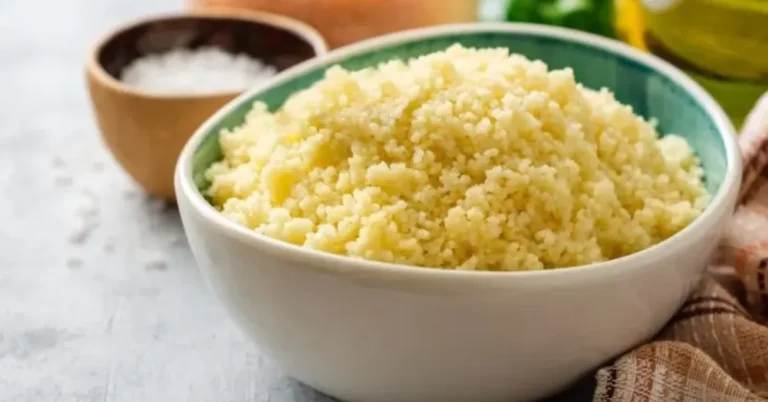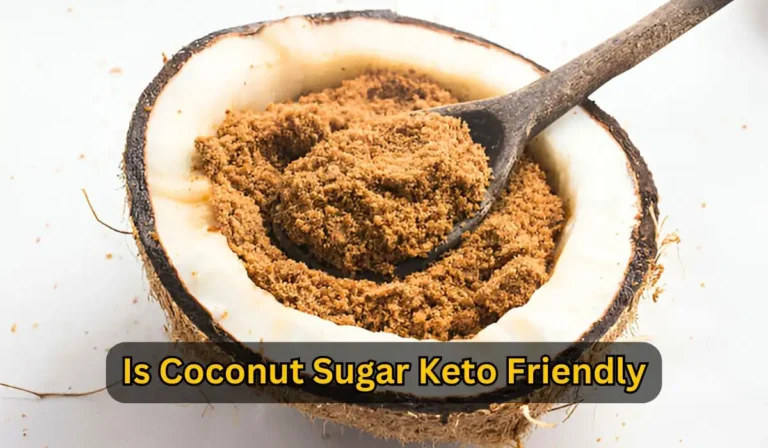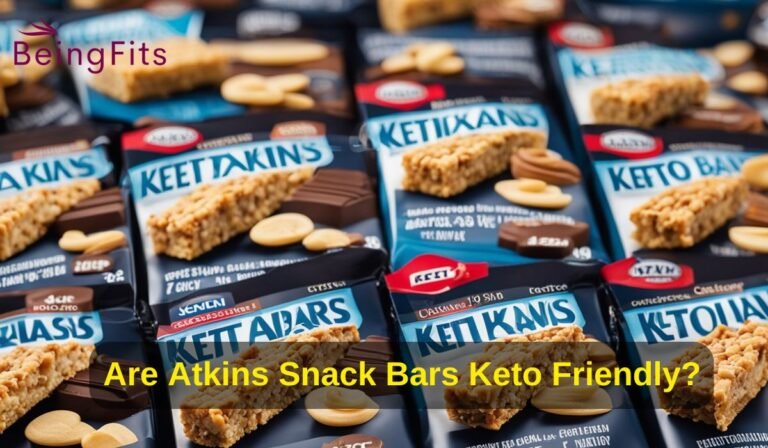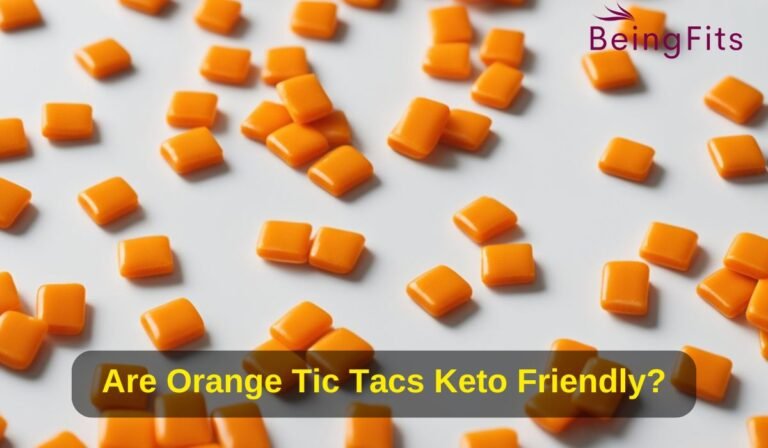Is Black Tea Keto Friendly? The Ultimate Guide
If you’re on a keto diet, you might be wondering if black tea is keto-friendly. The answer is yes, black tea is generally considered keto-friendly as it contains very few carbs and calories.
Black tea is a great beverage option for those on a keto diet who are looking to stay hydrated and enjoy a warm, comforting drink.

Before we dive into the specifics of black tea on a keto diet, let’s first define what a keto diet is and how it works. A keto diet is a low-carbohydrate, high-fat diet that aims to put your body into a state of ketosis, where it burns fat for fuel instead of carbohydrates. To achieve ketosis, you need to limit your carbohydrate intake to 20-50 grams per day and increase your fat intake to 60-75% of your daily calories.
Key Takeaways
- Black tea is generally considered keto-friendly as it contains very few carbs and calories.
- To enjoy black tea on a keto diet, it’s important to avoid adding sugar or other high-carbohydrate additives.
- While black tea is generally safe for most people, it’s important to talk to your doctor if you have any concerns about drinking it on a keto diet.
What Is Keto?

If you’re wondering whether black tea is keto-friendly, it’s important to understand what the keto diet is all about. The ketogenic diet, or keto for short, is a low-carb, high-fat diet that has gained popularity in recent years. The goal of the keto diet is to put your body into a state of ketosis, where it burns fat for fuel instead of carbohydrates.
Ketosis Explained
Ketosis is a metabolic state in which your body starts to burn fat for fuel instead of glucose. This happens when you drastically reduce your carbohydrate intake and increase your fat intake. When you do this, your body starts to produce ketones, which are molecules that are produced when your body breaks down fat.
When you’re in a state of ketosis, your body is burning fat for fuel instead of glucose. This can lead to weight loss, improved energy levels, and other health benefits.
Macronutrient Ratios on Keto
To achieve ketosis, you need to follow a specific macronutrient ratio. This means that you need to eat a certain amount of fat, protein, and carbohydrates each day. The typical macronutrient ratio for the keto diet is:
- 70-75% of calories from fat
- 20-25% of calories from protein
- 5-10% of calories from carbohydrates
This means that you need to eat a lot of healthy fats, such as avocados, nuts, and olive oil, and limit your intake of carbohydrates, such as bread, pasta, and sugar.
In summary, the keto diet is a low-carb, high-fat diet that aims to put your body into a state of ketosis. To achieve this, you need to follow a specific macronutrient ratio that involves eating a lot of healthy fats and limiting your intake of carbohydrates.
The Basics of Black Tea

Black tea is a type of tea that comes from the leaves of the Camellia sinensis plant, just like green tea, white tea, and oolong tea. The difference between these types of tea is in the way they are processed. Black tea is fully oxidized, which gives it a strong, bold flavor and a dark color.
Black Tea Composition
Black tea contains several compounds that contribute to its flavor and potential health benefits. These compounds include:
- Caffeine: Black tea contains caffeine, which can help boost your energy levels and improve mental alertness.
- Theaflavins and Thearubigins: These are antioxidants that are unique to black tea. They may help protect your cells from damage caused by free radicals and may have anti-inflammatory properties.
- Polyphenols: Black tea is rich in polyphenols, which are a type of antioxidant that may help reduce the risk of chronic diseases such as heart disease and cancer.
Caffeine Content in Black Tea
Black tea contains caffeine, but the amount can vary depending on factors such as the type of tea and how it is brewed. On average, an 8-ounce cup of black tea contains about 47 milligrams of caffeine, which is less than a cup of coffee but more than a cup of green tea.
If you are sensitive to caffeine or following a low-caffeine diet, you may want to limit your intake of black tea or choose decaffeinated black tea instead. Keep in mind that decaffeinated black tea may still contain a small amount of caffeine.
Black Tea on a Keto Diet

Carb Content in Black Tea
Black tea is a great option for those on a keto diet because it is very low in carbs. One cup of black tea contains only 2 grams of carbs [1]. This makes it an ideal choice for those who are trying to limit their carb intake and stay in ketosis.
Benefits of Black Tea for Keto Dieters
In addition to being low in carbs, black tea has several benefits for those on a keto diet. First, it contains caffeine, which can help boost your metabolism and increase fat burning [2]. Second, it is rich in antioxidants, which can help protect your cells from damage caused by free radicals [3]. Finally, black tea has been shown to reduce stress and improve mental focus, which can be helpful for those who are following a strict keto diet [4].
Overall, black tea is a keto-friendly beverage that can provide several benefits for those on a keto diet. So, go ahead and enjoy a cup of black tea without worrying about your carb intake.
How to Enjoy Black Tea on Keto
If you’re on a keto diet, you might be wondering how to enjoy your favorite beverage, black tea. Fortunately, black tea is keto-friendly and can be enjoyed in a variety of ways. In this section, we’ll explore some of the ways you can enjoy black tea on keto.
Keto-Friendly Black Tea Additives
One of the best things about black tea is that it can be enjoyed plain or with a variety of additives that are keto-friendly. Here are a few options to consider:
- Heavy cream: Adding a splash of heavy cream to your black tea can give it a creamy, satisfying flavor without adding too many carbs.
- Unsweetened almond milk: If you prefer a dairy-free option, unsweetened almond milk is a great choice. It’s low in carbs and adds a nutty flavor to your tea.
- Cinnamon: Cinnamon is a delicious spice that can add a sweet, warm flavor to your black tea. It’s also been shown to have some health benefits, such as improving insulin sensitivity.
- Ginger: Ginger is another spice that can add flavor and health benefits to your tea. It’s been shown to reduce inflammation and improve digestion.
- Stevia: If you need a sweetener for your tea, stevia is a keto-friendly option. It’s a natural sweetener that doesn’t raise blood sugar levels.
Recipes for Keto-Compliant Black Tea Beverages
If you’re looking for some inspiration for how to enjoy black tea on keto, here are a few recipes to try:
Bulletproof Black Tea
- Brew a cup of black tea.
- Add a tablespoon of grass-fed butter and a tablespoon of MCT oil.
- Blend until frothy.
This beverage is high in healthy fats and can help keep you full for hours.
Chai Tea Latte
- Brew a cup of black tea.
- Add a splash of unsweetened almond milk and a sprinkle of cinnamon, ginger, and nutmeg.
- Sweeten with stevia to taste.
This beverage is a delicious, warming treat that’s perfect for cold days.
Iced Tea with Lemon
- Brew a cup of black tea and let it cool.
- Add a squeeze of fresh lemon juice and a few drops of stevia.
- Serve over ice.
This refreshing beverage is perfect for hot summer days.
In conclusion, black tea is a keto-friendly beverage that can be enjoyed in a variety of ways. Whether you prefer it plain or with additives, there are plenty of options to choose from. Give these recipes a try and see which one is your favorite!
Potential Concerns and Considerations
Interactions with Keto-Induced Diuresis
When following a keto diet, your body may experience increased urination as it sheds excess water weight. While black tea can be a great addition to your keto-friendly beverage options, it’s important to consider how it may interact with this diuretic effect.
Black tea contains caffeine, which is a natural diuretic. While moderate caffeine consumption is generally considered safe, excessive caffeine intake can lead to dehydration and electrolyte imbalances.
This can be especially concerning for those following a keto diet, as dehydration and electrolyte imbalances can exacerbate symptoms such as fatigue and muscle cramps.
To avoid these potential issues, it’s important to monitor your black tea intake and ensure that you are staying hydrated with plenty of water and electrolyte-rich foods. Additionally, you may want to consider opting for decaffeinated black tea or limiting your caffeine intake from other sources to help mitigate any diuretic effects.
Monitoring Tea Consumption
While black tea can be a great addition to a keto diet, it’s important to monitor your consumption and ensure that you are staying within your daily macronutrient goals.
While black tea itself contains no carbohydrates, adding sweeteners or milk can quickly add up in terms of carbs and calories. If you enjoy your tea with a splash of milk, consider opting for a keto-friendly alternative such as almond or coconut milk. Additionally, you may want to experiment with natural sweeteners such as stevia or monk fruit to add flavor without adding carbs.
Overall, black tea can be a great addition to a keto-friendly diet, but it’s important to be mindful of how it fits into your overall macronutrient goals and to monitor your intake to avoid any potential issues.
FAQs About Is Black Tea Keto Friendly?
Can I enjoy black tea in the morning while on a keto diet?
Yes, you can enjoy black tea in the morning while on a keto diet. Black tea is a keto-friendly beverage that contains zero carbohydrates, making it a great option for those following a keto diet. Additionally, black tea contains polyphenols, which have been linked to various health benefits, including improved heart health and weight management.
How does black tea impact a keto diet aimed at weight loss?
Black tea can be beneficial for a keto diet aimed at weight loss. It contains caffeine, which can help increase energy levels and boost metabolism. Additionally, black tea contains compounds that have been shown to help reduce inflammation and improve insulin sensitivity, both of which can be helpful for weight loss.
Are there any carb concerns with drinking black tea on keto?
No, there are no carb concerns with drinking black tea on keto. As mentioned earlier, black tea contains zero carbohydrates, making it a great option for those following a keto diet.
What types of tea can I drink to maintain ketosis?
Apart from black tea, you can also enjoy other types of tea to maintain ketosis. Green tea, herbal tea, and oolong tea are all great options that contain little to no carbohydrates. However, it is important to avoid any teas that contain added sugars or fruit-based teas, as these can contain high amounts of carbohydrates.
Does adding milk to tea affect its compatibility with keto?
Adding milk to tea can affect its compatibility with keto, as milk contains lactose, a type of sugar. However, if you are only adding a small amount of milk to your tea, it is unlikely to significantly impact your ketosis. Alternatively, you can use unsweetened almond milk or coconut milk as a keto-friendly milk substitute.
Is it possible for diabetics on keto to drink black tea safely?
Yes, diabetics on keto can drink black tea safely. Black tea has been shown to help improve insulin sensitivity, which can be beneficial for those with diabetes. However, it is important to consult with your healthcare provider before making any significant changes to your diet, especially if you have a medical condition.





